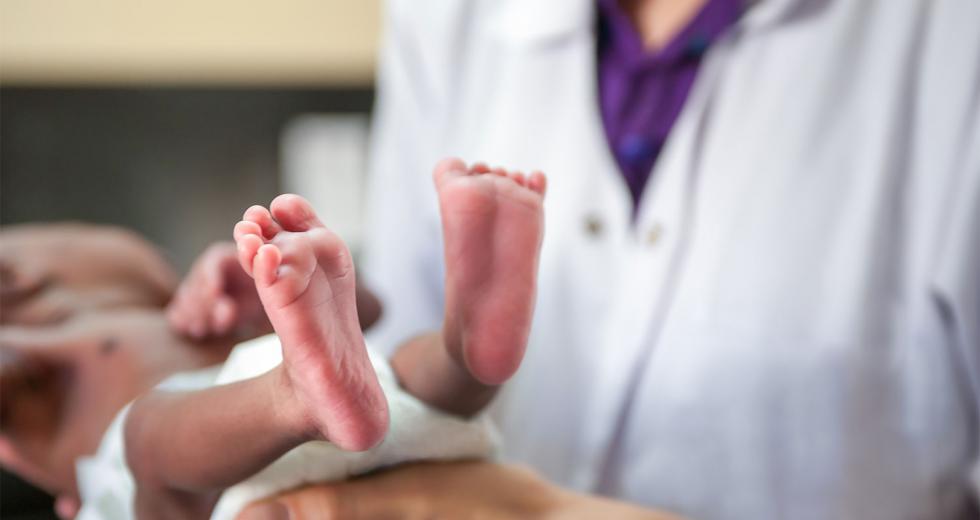In the next decade, as senior nurses leave the field, a new generation will take their place. The transition won’t be easy, as registered nurses fresh out of school must meet the massive demand of baby boomers and newly insured patients. But UC Davis Betty Irene Moore School of Nursing alumna Nicole Smith believes new nurses can transform the health care industry by disrupting the status quo.
“A lot of nurses stay in hospitals because that’s where they’re comfortable,” Smith says. “They really push you to have acute care experience. I think people value those nursing skills over working in the community, but nurses started out in the community way back when.”
For her master’s thesis, Smith focused on the role of race in infant mortality rates. Black infants born in the U.S. die within their first year twice as often as white infants, according to health studies. In an attempt to learn why, Smith started with a small research pool: three black and three white participants, all providers of perinatal health care for low income mothers in California. She asked their thoughts on the infant mortality gap. Without current data on the issue, her respondents shared anecdotal evidence based on what they witnessed in clinical settings.
“Most participants have seen the unequal treatment that black pregnant women get versus other races,” Smith says. “Racism wasn’t really the topic of any of my questions initially. As I started to hear it come out, I added it to my interview.”
Probing deeper, Smith discovered a link between biological factors and the social factors of racism that supersede them. She says black women experience emotional stress and trauma from racism that often triggers stress in the body. Stress hormones can cause low birth weight, pre-term birth and other complications. This complex but critical issue is not a new discovery. In 2009, the Sacramento County Child Death Review Team concluded a 20-year study that found black babies were dying at a disproportionate rate of 102 per 100,000 children — more than double any other racial group.
“It’s not just in our county or Sacramento County, it’s nationwide,” Smith says, “and it’s been happening for decades.”
For her thesis chair, Smith chose Dr. Jann Murray-Garcia, an assistant adjunct professor at the Betty Irene Moore School of Nursing who focuses on race and health as a large part of the curriculum. Murray-Garcia says Smith’s thesis work represents the kind of nurse the school aims to produce: a leader in the community who asks difficult questions about systemic health care inequalities.
“We need a workforce that can talk frankly about race and racism, without fear, defensiveness and avoidance behaviors,” Murray-Garcia wrote in a paper published in October. “We need a physician workforce that appreciates that dialogue with patients is not limited to the acquisition of clinical data, even what we might think of as culturally relevant data.”
Smith has wanted to work in health care since she was a child. At 14, she began volunteering at at the hospital in Fresno, where she grew up. But she didn’t always know she wanted to be a nurse. At the Johns Hopkins School of Nursing, she discovered community health nursing. After she graduated in 2000, she spent five years working in hospitals as a pediatric nurse. Living in Baltimore, she saw a different need for health care providers and the importance of preventative health. Smith now works as a nurse manager for the Alameda County Public Health Department, dedicated to decreasing the health disparity and improving birth outcomes for black infants. To decrease health care disparities, systems need to change. But strategies to do this remain in question. More efforts like cultural sensitivity training would help, Smith says, but there first needs to be a conversation.
“The major thing is addressing the elephant in the room: people’s inherent biases,” she says. “Biases they may not even be aware of. It’s not going to be a quick solution, but leaders need to get to work on this one.”
For more on the new age of nursing, check out Russell Nichols’ August feature, “Plight of the Novice Nurse.”




Comments
How are black women being treated differently from caucasian women? What is the attitude towards black women and their children? Why are caucasian caregivers so negative toward black women? I am so sick of this racist society against my black skin. I think my black skin is beautiful. I have as many degrees as the next white person, but I definitely would like to ask the next racist I come up against in nursing, "How can you call yourself a caregiver and add the stress of racial bias to this person's life and possibly kill her child? What in the world are you truly thinking? Do you not care?"
There will not be any effect on the health care sector if the senior nurses retire. Many students who are aspiring to be in the healthcare sector to treat the mankind. Whoever joining the nurse curriculum is fully determined to serve their country and wise enough! And i believe the black women are receiving racism torture; so it should be banned first and the nurses should be encouraged to treat them. However the babies who are taking birth should be taken care of as before and even more than that.
http://www.babysteals.com.au/b...